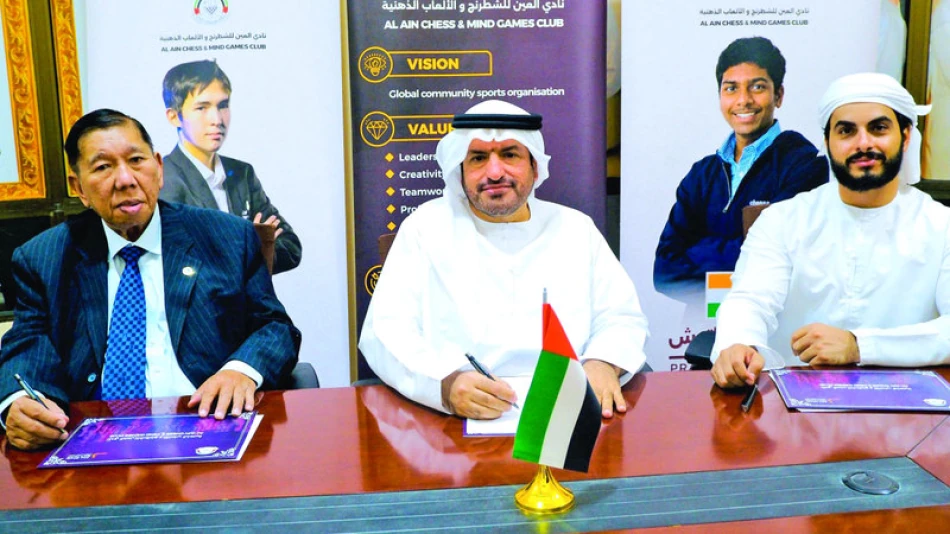
Al Hazza Bin Zayed Stadium Hosts Prestigious Global Chess Showdown
UAE Hosts Elite Chess Showdown as Asia's Rising Stars Battle for Grand Swiss Berth
The UAE is positioning itself as a premier destination for international chess competitions, hosting a high-stakes "Wild Card Match" between two world youth champions in Al Ain. The winner will secure Asia's coveted wild card entry to the prestigious Grand Swiss 2025 tournament in Uzbekistan, highlighting the region's growing influence in global chess governance and competition hosting.
A Strategic Chess Initiative from Asian Leadership
The match, taking place at Hazza bin Zayed Stadium on January 22-23, brings together Kazakhstan's Nogerbek Kazybek, the 2024 World Youth Champion, and India's Pranav Anand, who claimed the 2025 title. The initiative comes directly from Sheikh Sultan bin Khalifa bin Shakhboot Al Nahyan, President of the Asian Chess Union, demonstrating the UAE's commitment to elevating chess across the continent.
This wild card system represents a significant opportunity for emerging talent. The Grand Swiss tournament serves as one of the key qualifying pathways to the World Championship cycle, making this Al Ain showdown far more consequential than a typical exhibition match.
Format and Stakes: Classical Chess Under Pressure
The competitors will face off in two classical games over consecutive days, with FIDE-approved tiebreak systems ready to determine a winner if both games end in draws. This format emphasizes deep preparation and endurance over rapid tactical play, reflecting the classical nature of the Grand Swiss tournament they're competing to enter.
All-Emirati Officiating Team
The UAE is showcasing its chess infrastructure by appointing an entirely Emirati arbitration team, led by International Arbiter Ahmed Al Naimi as Chief Arbiter, with Moza Al Mamari serving as Deputy. This demonstrates the country's investment in developing local expertise alongside its hosting capabilities.
Regional Chess Power Dynamics
The match reflects broader trends in Asian chess development. Kazakhstan has emerged as a chess powerhouse in recent years, while India continues its remarkable rise with multiple world champions across age categories. By hosting this decisive encounter, the UAE positions itself as a neutral ground and facilitator for regional chess growth.
This aligns with similar initiatives across the Gulf region, where countries like Qatar and Saudi Arabia have invested heavily in sports infrastructure and international tournament hosting as part of broader diversification strategies.
Market Implications for Chess Development
For the global chess community, this UAE-hosted wild card match signals several important developments. First, it demonstrates Asia's increasing autonomy in chess governance, with regional federations creating their own pathways to elite competition. Second, it shows how oil-rich nations are leveraging sports hosting to build soft power and cultural influence.
The collaboration between Al Ain Chess and Mind Games Club, the UAE Chess Federation, and both Asian and International Chess Federations also illustrates the multi-layered partnerships necessary for modern chess tournament organization. This model could influence how future qualifying events are structured and funded across different regions.
The winner of this Al Ain showdown won't just earn a tournament spot—they'll represent a new model of how emerging chess nations can create opportunities for their rising stars while building their own sporting legacies.
Most Viewed News

 Sara Khaled
Sara Khaled






